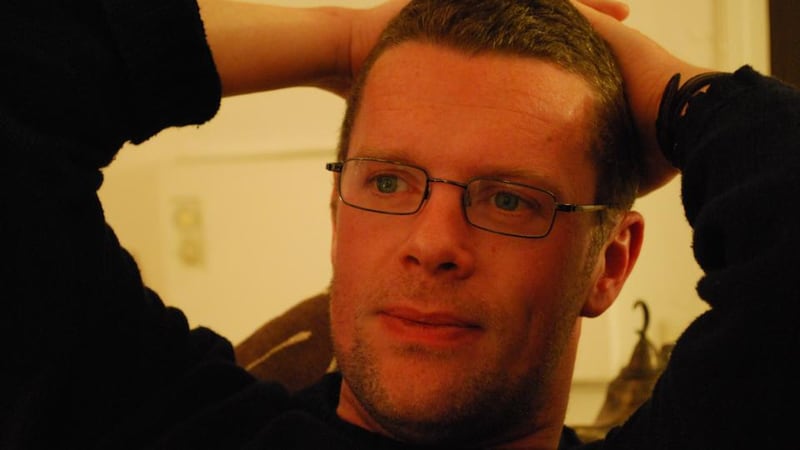Ebola viruses might be tiny, but their impact is mighty. More than half of infected humans do not survive the resulting viral hemorrhagic fever, and since March more than 960 people have died from Ebola virus disease in Guinea, Sierra Leone, Liberia and Nigeria. It's a situation that Derry-born virologist Dr Christopher Logue will see first hand next week when he travels to Guinea to help rapidly determine whether patients presenting with symptoms have Ebola virus or not.
Viral spread
Ebola viruses have been on the scientific radar since they were identified in humans in the mid-1970s, and the current outbreak in West Africa is the largest recorded to date.

"The virus was most likely spread to humans through contact with the blood or bodily fluids of an infected animal - fruit bats and non-human primates are suspected in Ebola outbreaks - and then the infection could pass from person to person," says Logue, a senior virologist within the Novel and Dangerous Pathogens training group at Public Health England (PHE), Porton Down, which is a World Health Organisation reference centre for hemorrhagic fevers.
Ebola virus can pass between humans through direct contact with blood or bodily secretions of an infected person, or through being exposed to contaminated objects such as needles. In a particularly awful twist, the virus can spread to family members and friends who are in close contact with infectious secretions when caring for someone with the disease. The virus persists for a time even after the person has died, meaning that burying them can also carry a risk of infection.
Rapid diagnosis
There is currently no licensed vaccine or approved drug to target the Ebola virus, but getting a timely diagnosis can identify the people who need to be kept isolated and supported through the symptoms, according to Logue.
“The high fatality rates [with Ebola] are generally associated with substantial fluid loss,” he says. “Some of those who do develop the disease recover with intensive supportive treatment consisting mainly of rehydration with solutions containing electrolytes and maintaining their oxygen levels and blood pressure.”
He is travelling to the outbreak as part of a three-person team with the EU-funded European Mobile Laboratory (EMLab) project. The lab has been in Guinea since March, deployed alongside an isolation centre set up by Médecins Sans Frontières (MSF), and is using tests that can identify within a few hours the presence of Ebola virus in blood samples.
“This allows patients testing negative to return home, and positive patients to receive treatment and supportive care as soon as possible,” says Logue. “To date, teams have been processing approximately 10 patient samples per day with occasional days requiring processing up to 30 samples. While many of the early samples came from Guinea, the numbers of samples arriving from Liberia has increased as the outbreak continues.”
Infection plan
Should Logue or another member of the team become infected with the virus, options include being moved to an isolation unit in West Africa or in the country where the person is normally based.
“The outcome very much depends on the stage of the infection, and would have to be assessed on a case-by-case basis,” he says. “That being said, we are all very experienced in working with highly pathogenic agents, in working in the mobile lab under stressful conditions, and we are extremely well versed in correctly fitting our personal protective equipment, all of which considerably reduce the risks of becoming infected with the virus.”
Testing times
Logue, who grew up in Park Village in “the heart of the Sperrin mountains”, did his PhD at Trinity College Dublin and went on to work at the Centers for Disease Control & Prevention in the US.
He has worked on the genetics and detection of several viruses that can cause problems for humans, including the Crimean-Congo hemorrhagic fever virus, Chikungunya virus, Dengue fever virus and hantavirus. He is an adjunct professor at Universidad San Francisco de Quito in Ecuador, where he is part of a project to identify viruses carried by bats in a region of the Amazon rainforest.
Last year Logue joined the Novel and Dangerous Pathogens training group within PHE, where he develops lab training courses in detecting and handling agents of disease. “No two days are ever the same,” he says. “We have trained scientists in a range of techniques, from safely growing highly pathogenic avian influenza (H5N1) in eggs and testing for several hemorrhagic viruses in human samples, to training scientists to recognise Bacillus anthracis [the bacterium that causes anthrax] in the lab.”
And how does he feel about his impending month in Guinea, where he will not only be analysing samples for Ebola but training local scientists in techniques used in the lab to test for the virus? “I am really pleased that I can assist in supporting the incredible work that organisations such as MSF are already doing,” he says. “It is also satisfying that after the many years of working with viruses, I will now be able to use these skills to help patients by providing a rapid diagnosis.”










